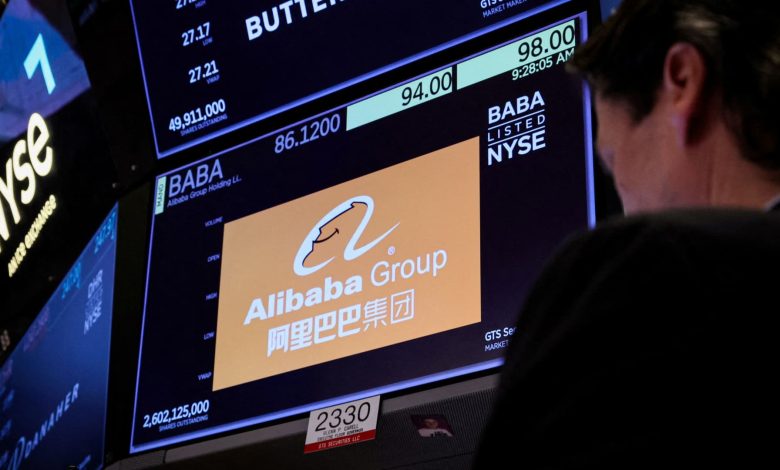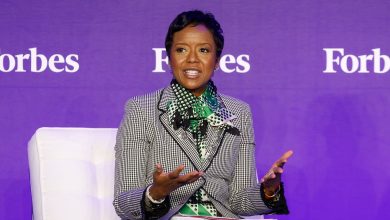Alibaba rose on China AI hopes. Where analysts see the stock heading

Alibaba is back in the spotlight — with U.S.-traded shares soaring nearly 70% so far in 2025 — as a favored play on Chinese artificial intelligence. The company said Thursday its AI-related product revenue grew by triple digits for a sixth-straight quarter in the period ended December. Its Qwen AI model has proven itself a capable rival to DeepSeek , along with winning a deal for iPhones sold in China . Founder Jack Ma, once politically sidelined, made his latest public reappearance on Feb. 17 — with a front-row seat at a rare meeting Chinese President Xi Jinping held with entrepreneurs , including DeepSeek’s Liang Wenfeng. Several analysts think Alibaba’s gains will continue, with Jefferies setting a $156 price target as of Feb. 20. That’s upside of more than 8% from Friday’s close of $143.75. UBS equity strategists on Thursday said they have switched out PDD for Alibaba in a model portfolio “given its exposure to AI and quant factors.” Remember how just several months ago the Temu parent had a larger market cap , raising concerns that Alibaba was struggling to compete on its core e-commerce business? Taobao and Tmall Group saw sales rise 5% in the latest quarter. As excited as many investors are about AI opportunities in China, crowding into related stocks has only picked up by 0.02 so far this year on UBS’s scoring system. That’s far below the increase of 0.2 in the crowding score for U.S. AI-related names over the last two years, UBS said. Alibaba had the highest crowding score among large Chinese internet technology names, the report said. “Our Quants team’s analysis previously suggested that stocks with reasonable but improving crowding have seen the most near-term outperformance.” Hong Kong’s Hang Seng index hit a three-year high Friday with China Unicom, Lenovo and Alibaba’s locally traded shares leading gains. “Should investors rotate from Alibaba to the AI trade laggers (i.e. Tencent and Baidu)? Not for now,” JPMorgan internet analyst Alex Yao wrote in a Feb. 17 note. “We think both Tencent and Baidu’s share prices could be driven by AI development in different ways with different risks.” U.S.-listed shares of Baidu are up by about 8% for the year so far, despite the company sharing on Feb. 18 that its AI Cloud revenue rose 26% year-on-year to 7.1 billion yuan in the fourth quarter. Hong Kong-traded shares of Tencent , which has yet to report earnings for the period, have risen by about 24% for the year so far. JPMorgan is neutral on Baidu, but overweight on Tencent and Alibaba. The firm has a price target of $125 on Alibaba shares, suggesting a 13% decline from Friday’s close. At least four other major investment firms have a buy rating on Alibaba. But Morgan Stanley is notably more cautious with an equal-weight rating and a price target of $100. That would imply a drop of 30% from Friday’s close. The firm pointed out that Alibaba’s capital expenditures were 11% of revenue in the latest quarter, versus 3% in the prior quarter — a potential weight on future margins that management warned about. Morgan Stanley also highlighted risks such as weaker consumption and a slower pace of enterprise digitalization. — CNBC’s Michael Bloom contributed to this report.



